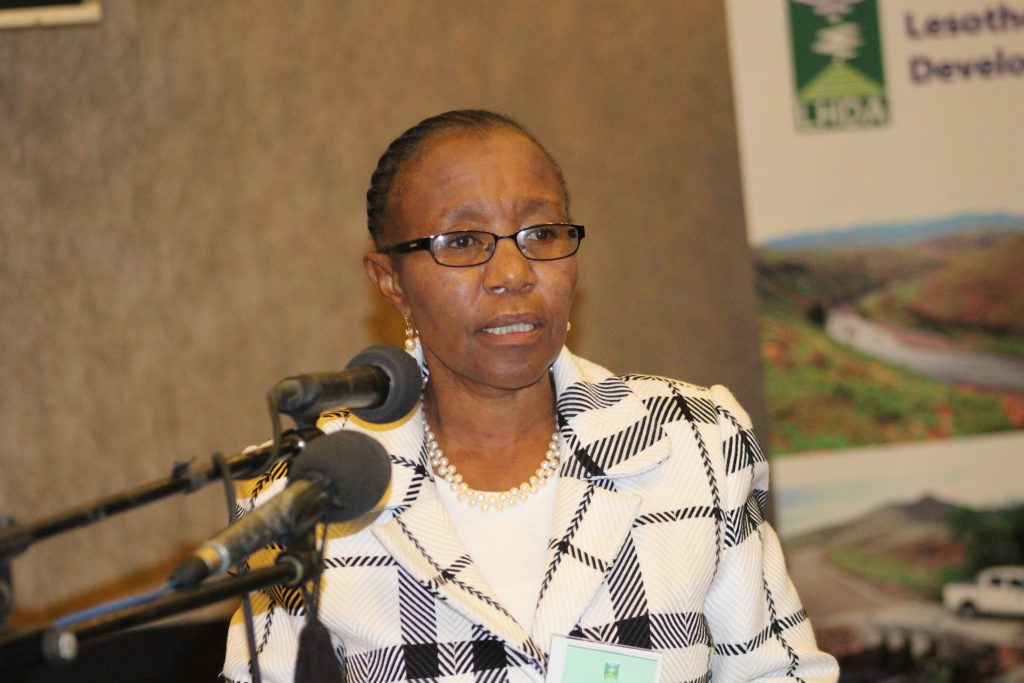
Staff Reporter
THE Lesotho Highlands Development Authority (LHDA) has awarded Polihali Infrastructure Consultants (Pty) Ltd a M74.3 million contract for the planning, design and construction supervision of housing and associated infrastructure for Phase II of the Lesotho Highlands Water Project (LHWP).
The LHWP is a multi-phase, bi-national initiative established by a 1986 Treaty between Maseru and Pretoria, and involves the construction of dams and water-transfer tunnels in the two neighbouring nations, and the generation of hydro-electric power in Lesotho.
South Africa seeks to augment its water-supply for both domestic and industrial use through the project, while Lesotho expects to benefit from infrastructure such as roads, as well as royalties and electricity from the initiative.
Phase I of the LHWP, consisting of the construction of Katse and Mohale dams, Muela hydropower station and associated tunnels, was inaugurated in 2004, and Phase II processes were subsequently initiated in 2010. The M15 billion Phase II would, among others, see Polihali Dam being constructed at the confluence of Khubelu and Senqu rivers beginning 2017, with the project earmarked for completion in 2022.
The LHDA is the implementing and management authority of the LHWP on behalf of Lesotho, while in South Africa, the project is governed by the Trans-Caledon Tunnel Authority.
According to the LHDA, Polihali Infrastructure Consultants is a joint-venture between Mott MacDonald PDNA (Pty) Ltd and Khatleli Tomane Moteane (Pty) Ltd. The contract includes the preparation of preliminary and detailed architectural and engineering designs of both temporary and permanent project housing and related infrastructure. It will also involve preliminary and detailed design of utilities, preparation of tenders and contract documents, as well as the procurement of construction contracts.
The consortium is also mandated with supervising the construction programme and environmental monitoring. Work began at the beginning of this month, and is scheduled for completion towards the end of 2021.
LHDA Chief Executive, Refiloe Tlali, said the contract was part of advance infrastructure works that must be completed to facilitate the construction of Polihali dam, a transfer tunnel and the hydropower station.
“This is the biggest of the Phase II contracts concluded so far this year. The quality of its deliverables and importance of its timeous completion cannot be over emphasised, given Phase II’s timelines and contribution the project-implementation is expected to make to the local economy,” said Ms Tlali.
“The LHDA is confident the Polihali Infrastructure Consultants Joint Venture, comprising Mott MacDonald PDNA (Pty) Ltd and Khatleli Tomane Moteane (Pty) Ltd, has the capacity to deliver the brief.”
Some of the structures built as part of the contract, the LHDA noted in a statement, were intended for long-term use.
“These include staff accommodation in the Polihali reservoir area which will be built as a village with all appropriate associated facilities; a visitors’ lodge at the staff village which will become a tourist facility and the employer’s and engineer’s offices at the dam site which will become the operations staff offices and a visitors centre on completion of the scheme,” the authority indicated.
On his part, Mott MacDonald’s Africa Managing Director, Dempsey Naidoo, said the company was equal to the challenge because of its vast experience in Africa and beyond.
“The next phase of what’s already proved one of the world’s most successful cross-border water-collaboration projects will bring benefits beyond increased water and electricity supply, and we are delighted at this opportunity to contribute further to the region’s economic and social development,” said Mr Naidoo.
“Drawing on our planning, design and construction management experience across Africa and around the world, we are greatly looking forward to working with our Lesotho architect partner, KTMA, to help deliver a wide range of enabling infrastructure, from access roads and contractors’ working facilities to housing, community buildings and tourism amenities.”

